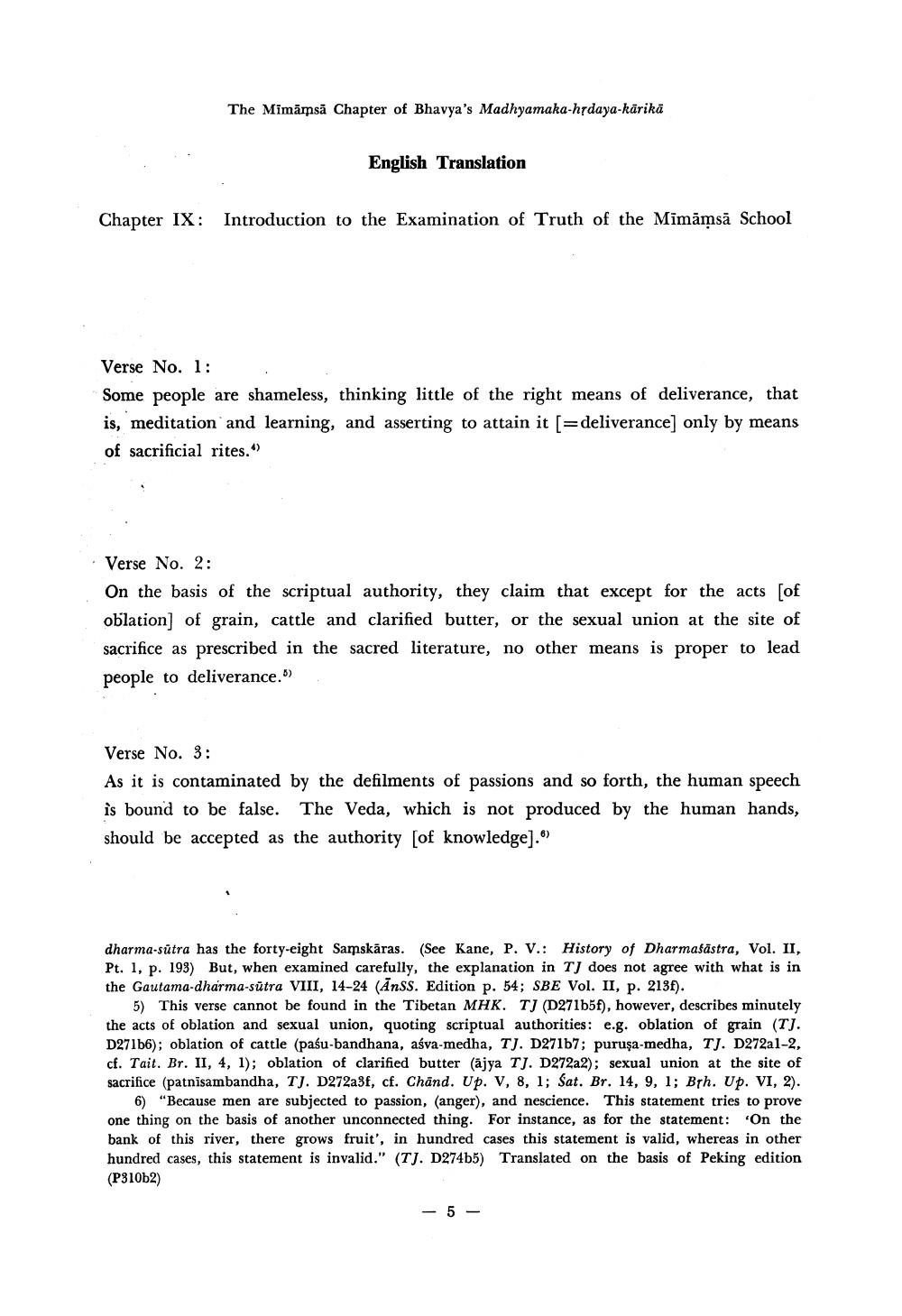Book Title: Mimansa Chapter Of Bhavyas Madhyamaka Hrdaya Karika Author(s): Shinjo Kawasaki Publisher: Shinjo Kawasaki View full book textPage 5
________________ The Mimāmsā Chapter of Bhavya's Madhyamaka-hrdaya-kärikā English Translation Chapter IX: Introduction to the Examination of Truth of the Mimāmsā School Verse No. 1: Some people are shameless, thinking little of the right means of deliverance, that is, meditation and learning, and asserting to attain it [=deliverance] only by means of sacrificial rites. Verse No. 2: On the basis of the scriptual authority, they claim that except for the acts (of oblation] of grain, cattle and clarified butter, or the sexual union at the site of sacrifice as prescribed in the sacred literature, no other means is proper to lead people to deliverance.) Verse No. 3: As it is contaminated by the defilments of passions and so forth, the human speech is bound to be false. The Veda, which is not produced by the human hands, should be accepted as the authority [of knowledge). dharma-sūtra has the forty-eight Samskäras. (See Kane, P. V.: History of Dharmasastra, Vol. II, Pt. 1, p. 193) But, when examined carefully, the explanation in TJ does not agree with what is in the Gautama-dharma-sutra VIII, 14-24 (Anss. Edition p. 54; SBE Vol. II, p. 213f). 5) This verse cannot be found in the Tibetan MHK. TJ (D271b5f), however, describes minutely the acts of oblation and sexual union, quoting scriptual authorities: e.g. oblation of grain (TJ. D271b6); oblation of cattle (pasu-bandhana, aśva-medha, TJ. D271b7; purusa-medha, TJ. D272a1-2, cf. Tait. Br. II, 4, 1); oblation of clarified butter (ājya TJ. D272a2); sexual union at the site of sacrifice (patnisambandha, TJ. D272a3f, cf. Chand. Up. V, 8, 1; Sat. Br. 14, 9, 1; Bth. Up. VI, 2). 6) "Because men are subjected to passion, (anger), and nescience. This statement tries to prove one thing on the basis of another unconnected thing. For instance, as for the statement: On the bank of this river, there grows fruit', in hundred cases this statement is valid, whereas in other hundred cases, this statement is invalid." (TJ. D274b5) Translated on the basis of Peking edition (P31002) - 5 -Page Navigation
1 ... 3 4 5 6 7 8 9 10 11 12 13 14 15 16 17 18 19
